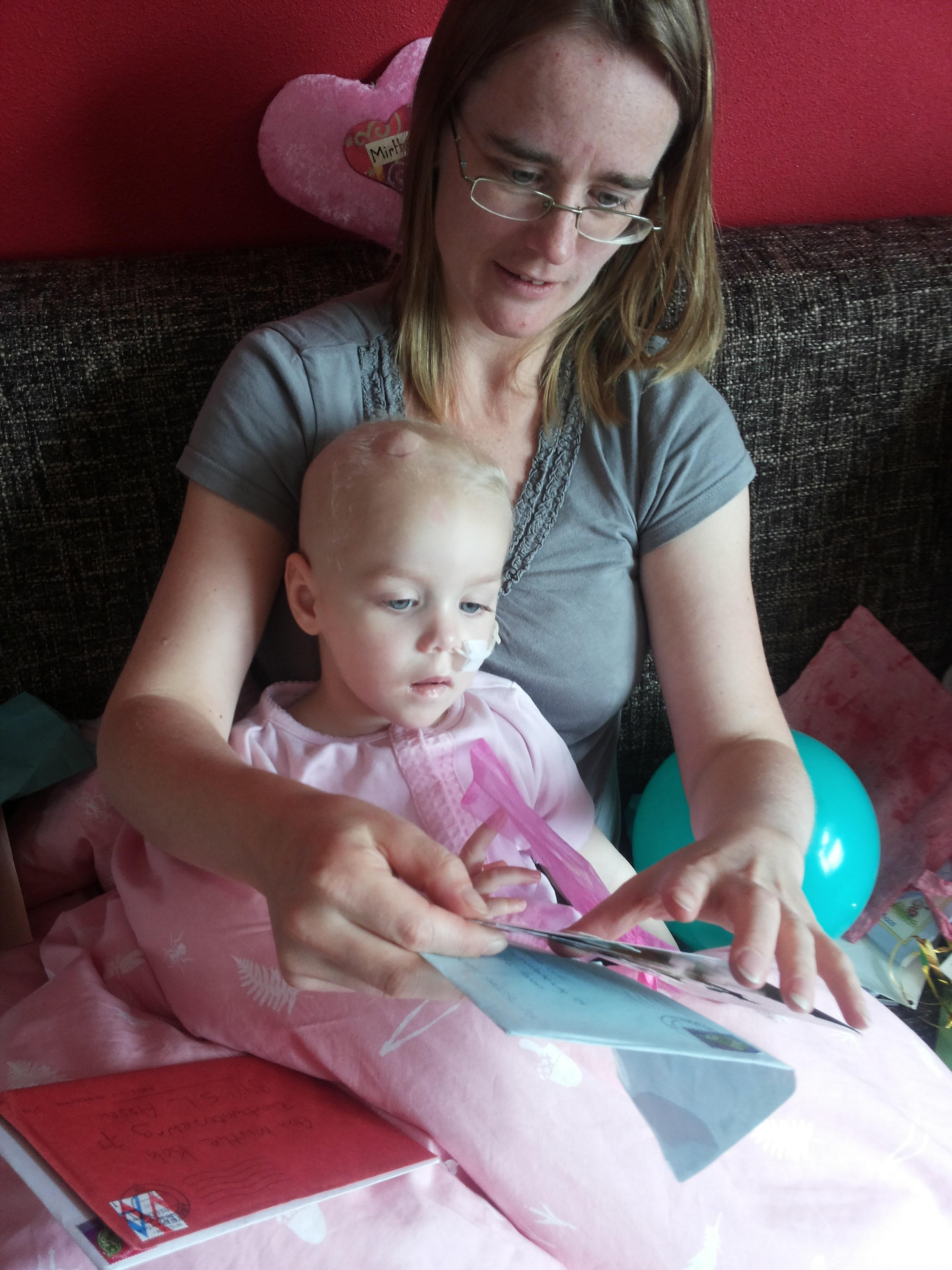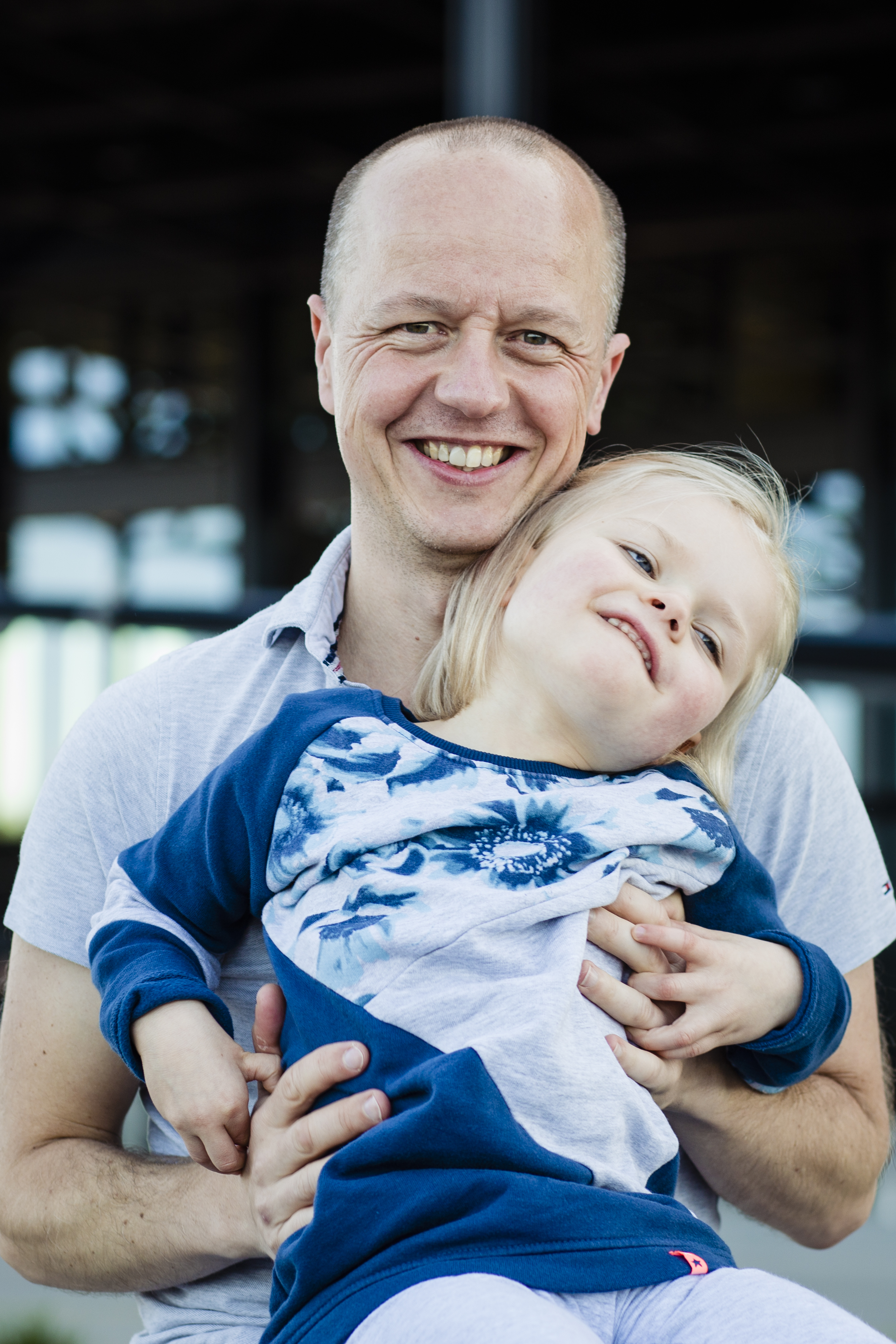Brenda van Zanden, mother of Isabel*
Use her experience as: holistic therapist and owner of brendavanzanden.nl
Since: 2020
'At the diagnosis it was clear that Isabel would die from her condition. For years I fought against it, as I was taught. After a long process, with the help of a coach/mentor, I dared to face the truth and look under that fear. There I found a lot of peace, space and the confidence that I could handle this. I also learned to accept what is from Isabel. She never fought against her limitations and let go of her life very nicely. Not out of fear, but out of light and trust'.
What experiences do you want to pass on to others?
'I also want others to feel and experience that they can rely on their own path. That is why I am training as a holistic therapist and have started my own practice. There I often meet women who often run and fly. They think they have to live up to all sorts of expectations. And that they are only allowed to take care of themselves when their children are at school, for example. They look for peace outside of themselves. I want them to feel that no matter what is going on around them, the peace is within themselves. Isabel is my example in this. Despite her epilepsy, she could always enjoy her lights or the bubbles she hit.'
How do you put your experience into practice?
'In my practice I bring people back into contact with their own body within a safe setting, through Reiki, massage and coaching. It's difficult to put into words, but when clients in my practice feel certain sensations in their bodies, they say: 'Now I know what you mean!' I let clients feel how they are doing, energetically and spiritually. And I teach them to accept and let go of what is happening so that they can move through life more easily. Clients can opt for separate treatments or trajectories. I work body-oriented, connecting without words. I also learned that from Isabel. She could only communicate with her eyes and sounds. When I greeted her, I put my hand on her chest first and waited for her to look at me. Only then did I start talking.'
What tip do you have for parents and healthcare professionals?
'When the diagnosis is made that your child is terminally ill, healthcare professionals usually emphasize that the situation is serious and difficult. It is nice if healthcare professionals also pay attention to the fact that you as a family can influence how you deal with it. In the beginning, as parents, you are usually not yet concerned with this. But even then a little loving attention to yourself can be helpful. For example, by looking for the silence in the hectic and focusing on your breathing. That can help you stay on your feet and be able to bear the situation. It's nice if healthcare professionals also have an eye for that.'
Liedeke van Spronsen, mother of Mirthe*
Use her experience as: candle maker and owner of sml-kaarsenatelier.nl (Super Mirthe's Lichtpuntjes)
Since: 2015
'To comfort myself, I started making candles from leftover candle wax after Mirthe died. I was out of work. Caring for her had taken up all my time and attention, which meant that I had ended up on social assistance as a self-employed person. Girlfriends bought candles to support me financially. That started with eight candles a day. Beforehand I had not thought of turning it into a company, but I kept expanding. SML has now grown to two locations in Assen and Bourtange and we sell about 20,000 candles per year. I still make most candles from old candle wax that is collected nationally.'

What experiences do you want to pass on to others?
'Because I want Mirthe to stay in my life and others to get to know her, I call my candle studio Super Mirthe's Lichtpuntjes (SML). It reappears in many aspects,
as in the warmth and connection that candles provide during loving events. Candles provide cosiness. Mirthe loved that very much. She loved it when her brother Lars brought friends home. You will also see Mirthe in the many colors of our range. She loved that. She preferred to wear twenty bracelets at the same time in all kinds of different colors. So where other studios only supply some colors during a certain season, you can buy all the colors of the rainbow from us all year round.'
How do you put your experience into practice?
'What I have experienced with Mirthe is also reflected in how I do business. After her death, my mind went blank and I felt not only unfit for work, but also socially unfit. In Assen I have a whole team at work of people who have experienced the same thing or have ended up on social assistance in a different way. At SML, they get the opportunity to work with us so they can rebuild their lives and experience what it means to be human. They regain the sense of added value, so that they may be able to take the step back to regular work at a later time.'
What tip do you have for parents and healthcare professionals?
“The love for your child does not end with death. I love Mirthe no less today than I did then. It is good that healthcare professionals realize this. And that death is negotiable, if that is the case. We had a bad prognosis at the time. Yet there was only talk of healing and treatment, while I kept asking myself: what is her quality of life now that she is in so much pain? I discovered that many parents have questions about that. I think it's the job of healthcare professionals to help parents in this, so that this can be discussed openly.'
Marcel van Bockel, father of Fiene
Use his experience as: program manager Learning and Working at Elkedin
Since: 2019
'Fiene (11) was born with a very severe intellectual multiple disability (ZEVMB). That means that she can develop much less physically and mentally. We were sad when she was born. Especially because we had to say goodbye to our own expectations. The care for our daughter is lifelong. Fiene herself does not have that expectation pattern. She lives in the here and now. She radiates positivity and energy. She lets you know how she feels by making noises. We conclude that she is content with her life. Unfortunately, she suffers from epilepsy. That manifests itself in different ways.'

What experiences do you want to pass on to others?
'Fiene, and so do we as a family as a result, often lives isolated from the rest of society due to her disability. For example, she goes to daytime activities a few days a week. There she only comes into contact with children who also have a disability. She does not meet her peers who go to regular education. I think it would be good if there was a learning environment where these groups meet. In this way, children learn from regular education that children with disabilities are part of our society. Now children are regularly frightened by children like Fiene.'
How do you put your experience into practice?
'Because of these experiences I exchanged my job as organizational consultant at TwynstraGudde for a role as program manager at Elkedin, the umbrella organization for people with a disability or chronic illness. We tackle problems that our members encounter nationally. When determining what we are going to do and shaping the support, we often make use of the input of experts by experience. Sometimes the work is very close to my own experience. I am now mainly concerned with issues such as how you can still go to school or stay at work with a disability. It is great, for example, that we are taking steps in the field of inclusive education.'
What tip do you have for parents and healthcare professionals?
'Fiene needs care 24 hours a day. Besides us as parents, there are many different people who take care of Fiene, both at home and during the daytime activities. It is best for Fiene if the interaction with her is the same everywhere. For example, think of the way she is greeted. Professional healthcare providers sometimes want too much. Sometimes Fiene can't handle that in terms of incentives. Making good agreements about this with so many different healthcare professionals is complicated and is now often the responsibility of the parents. It's nice to be better supported in this.'